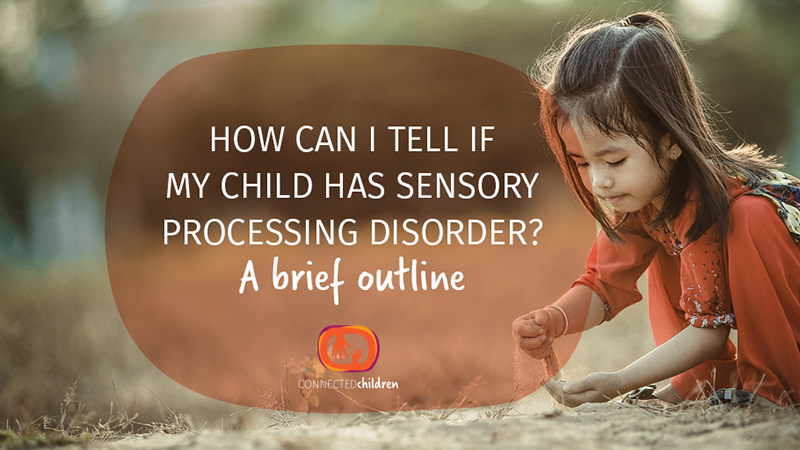
How Can I Tell If My Child Has Sensory Processing Disorder
Please note, this post is a brief outline of sensory processing and is intended to guide an initial reflective practice for parents. This is intended to deepen understanding of key concepts and determine a need for further action if required.
It is not to be used to provide techniques specific to your child. Please see an occupational therapist if you feel you need further input after reviewing the following information.
In recent years, there has been a significant increase in awareness of sensory processing difficulties in children and the day to day impact on their patterns of behaviour. This has been fantastic to increase understanding of an issue that can significantly impact on children affected and thus they may receive more support from family, friends and teachers (where possible).
It is widely recognised now that sensory processing difficulties can affect children’s ability to function in everyday tasks such as paying attention in class, sitting still during floor time at school and managing socially at school.
However, it has left many parents asking, ‘does my child have this?’
So what is sensory processing all about?
Our bodies are constantly processing a range of sensory inputs, visual system, auditory system, touch and sensors in our body to help plan and coordinate movements and other inputs.
When a child has difficulty with sensory processing, they can have trouble perceiving, organising and responding to everyday sensations.
For example, input can be perceived as a threat to the system, such as disliking the feel of sand, being bothered by tags on clothing, glue on fingers or physical contact from another child in the line at school. The child’s system in this situation may have trouble making meaning of the input and providing an adaptive response. This means responding in an appropriate way to this sensation in this context.
One of the challenges to understanding and identifying sensory processing issues is the wide variety of ways it can present in a child (or adult).
To understand whether your child is having difficulty with sensory processing, ask ‘Is this affecting my child’s performance in everyday tasks?’
Do they seem to find some sensory experiences challenging to the point that it can affect their ability to get ready in time in the morning, pay attention at school or respond appropriately in social situations. Do these sensory experiences impact upon their emotional responses? Research on sensory processing has shown that there can in some cases be a correlation with anxiety in children. Hence parents may see meltdowns or other challenging behaviours.
A key philosophy of Connected Children is to support parent’s ability to harness their instinctive capacity to parent. This is supported by a study looking at parent’s ability to identify sensory processing issues in their preschool children. This research indicated they were reliably able to identify these issues. I suggest to parents that it is valuable to spend time observing their child across a range of situations.
What are some other reasons my child be responding in this way?
I also suggest parents and teachers consider several possible theories for understanding their child’s behaviour and emotional responses,
for example, ask yourself, is my child tired/hungry/out of routine? How is this affecting my child’s response and their ability to cope in this context? It is important to remember that children can display behaviours which may appear to be sensory but may have an emotional component instead, for example, struggling in noisy or unfamiliar situations can be due to social characteristics of the child.
Hence it is important to observe your child’s behaviour over time and across a range of situations.
These responses may be inconsistent, which is common among children who have differences with their sensory functioning.
It is also worth noting that a young child’s sensory system is still developing, therefore some reactions may be typical in the early years. For example, a three year old may dislike the feeling of sand but by seven years old they may love it.
Understanding sensory processing difficulties can be overwhelming, especially when supporting your child can become such a focus, you can get to the point that you’re questioning, ”am I on the right path giving my child what they need to thrive?”. What if you could better support your child to regulate their emotions to help them do what they want and need to do in everyday life….
The problem is there are different types of sensory patterns. Some kids are seekers, they can rush into the classroom, touching others, interrupting and on the go. Other children are sensitive and don’t want to step in the classroom in the first place. What you want is to help them in a way that is most useful for their specific needs.
There are different strategies for supporting kids and helping them to regulate their emotions, but you need to understand their sensory needs first.
One of the most powerful outcome predictors for children with sensory processing difficulties, is not their type of sensory patterns or needs. What often makes the biggest difference, is that the child has people in their life, who can meet their sensory needs and be their child’s advocate, so that others understand them too.
Want to talk?
You can also book an online consultation with the course in order to talk through your child’s needs further. This will also involve completing a sensory profile for your child and you will receive a brief summary to help you follow through with strategies we discuss that are tailored to your child and family.

